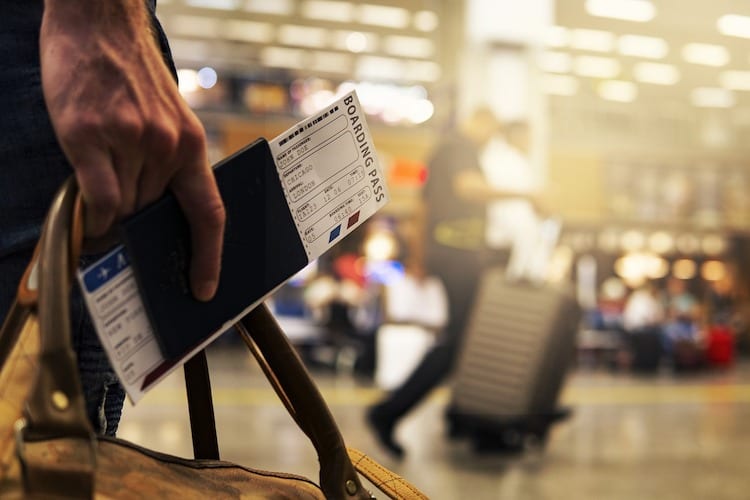Scammers Want Your Boarding Passes. Here’s How They Get Them

A boarding pass, as the name implies, is your only way to get on a plane. Once you’re actually on the plane though, the boarding pass stops mattering – at least to you. Maybe you’ll throw it out at your destination or snap a photo of your boarding pass from your cushy window seat. But beware, because scammers can still gain a lot from a used boarding pass.
In fact, details on your boarding passes can expose you to fraud or identity theft if left unprotected. In addition to info like your name that’s printed in plain letters, scammers can also glean info from the barcode on your pass. Here’s what you need to know about boarding pass scams, and how to safely dodge them.
Why Scammers Want Your Boarding Pass
In September, former Australian Prime Minister Tony Abbott posted a since-deleted picture of his boarding pass on a flight from Tokyo to Australia on Instagram. Within 45 minutes of the post, a hacker had struck. Abbott flew Qantas – Australia’s most popular airline – and posted his ticket with the barcode showing.
The hacker, who detailed his infiltration in a blog post, scanned the barcode and was able to draw out Abbott’s booking reference number and last name, the only two pieces of information required to access his Qantas account. Through the barcode, the hacker also accessed Abbott’s phone and passport numbers.
Luckily, this particular hacker was not interested in scamming the former Prime Minister. He reached out to authorities explaining the situation and said he hoped this shows how vulnerable anyone who posts a boarding ticket online can be.
“The point of this story isn’t to say ‘wow Tony Abbott got hacked, what a dummy,'” the hacker wrote on his blog. “The point is that if someone famous can unknowingly post their boarding pass, anyone can.”
Boarding passes contain far more data than you’d expect in QR or barcodes. If a scammer had your passport number, phone number, and access to your airline account, they could do some significant damage. The worst part is that you’ll likely have no idea who is stealing your identity. If you post on social media, literally anyone can see it. If you leave your boarding pass behind or in the trash, any passerby at the airport can grab it.
Staying Safe
While the problem is complicated, the solution is simple. The best way to protect the sensitive information within your barcode is to keep your barcode private. That doesn’t mean you can’t brag about your trips on social media, but if you really want to post your boarding pass obscure your name and barcode.
The same goes for trashing your pass too. Just be careful and mindful of what you’re doing. Only discard a boarding pass somewhere private, or tear up the barcode if you’re throwing it away in a public spot.
To be fully protected (and to save some trees!), skip printing a physical pass altogether. Most airlines allow you to download your ticket on your phone, cutting out a potential avenue for scammers to get your info.
Whatever you do, be safe and mindful of the fact that your personal information can be gathered from your ticket. For many people, just knowing that is half the battle.
See Also: Major Airlines are Eliminating Flight Change Fees. Why?









